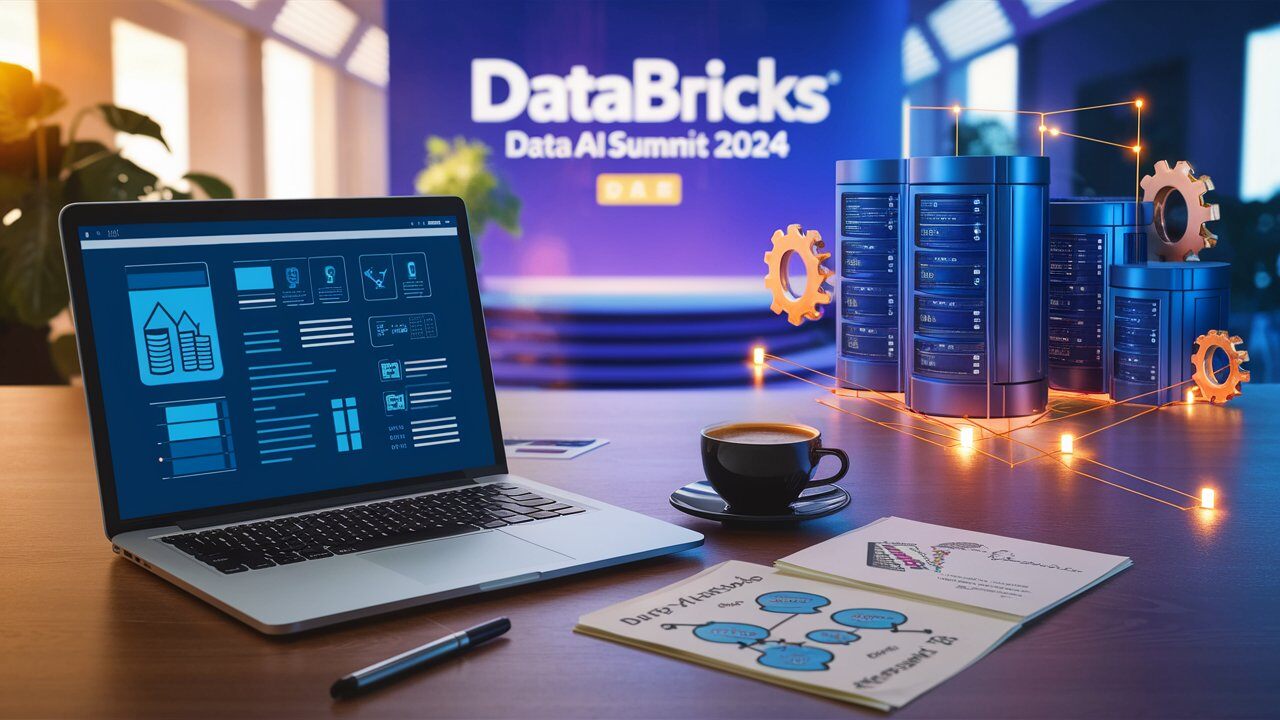
The Databricks Data AI Summit 2024 provided a compelling view into the rapidly evolving competitive landscape between Databricks and Snowflake. As two of the leading data platforms in the industry, both companies are pushing the boundaries of innovation and redefining how enterprises manage, analyze, and leverage their data. This piece analyzes the ongoing competition between Databricks and Snowflake, focusing on their respective innovations and market strategies as discussed by industry experts.
- Lakehouse Architecture: The Lakehouse architecture combines the best features of data lakes and data warehouses, offering a single platform for all data types and workloads. This architecture enables efficient data storage, real-time processing, and advanced analytics.
- Open-Source Commitment: Databricks' strong commitment to open source is evident in its contributions to projects like Apache Spark and Delta Lake. The open sourcing of Unity Catalog, a unified data governance solution, underscores Databricks' dedication to fostering a collaborative ecosystem and democratizing data management.
- Generative AI Integration: Databricks is at the forefront of integrating generative AI into its platform. Tools like Mosaic AI enhance data preparation, model training, and deployment, making AI more accessible and efficient for enterprises.
- Data Cloud: Snowflake's Data Cloud enables seamless data sharing and collaboration across organizations. This network effect allows businesses to easily access and analyze shared data, fostering a data-driven culture.
- Separation of Compute and Storage: Snowflake's architecture separates compute and storage, allowing for independent scaling of resources. This flexibility is a significant advantage for organizations with varying workloads and data processing needs.
- Expansion into Data Science and AI: While Snowflake initially focused on data warehousing, it is rapidly expanding into data science and AI. Integrations with third-party tools and support for machine learning models are part of Snowflake's strategy to capture a broader market.
- Lakehouse Federation and Lakeflow: These tools enable connections to diverse data sources, such as Snowflake, SAP, and Salesforce. This integration allows for seamless data sharing and clean rooms, enhancing the platform's versatility.
- Focus on Small Language Models: Databricks emphasizes the use of small language models for specific tasks, providing a practical approach to AI deployment that balances performance and resource efficiency.
- Generative AI Capabilities: The integration of generative AI enhances Databricks' platform, allowing users to generate insights and automate data processes effectively. This capability is pivotal for enterprises looking to leverage AI for competitive advantage.
- Native App Framework: Snowflake's native app framework enables the development and deployment of applications directly within the Snowflake environment. This initiative simplifies the creation of data-driven applications and extends the platform's functionality.
- Enhanced Data Sharing: Snowflake's focus on data sharing through its Data Cloud facilitates collaboration and insights across organizations. This capability is a cornerstone of Snowflake's strategy to build a connected data ecosystem.
- AI and Machine Learning Integrations: By integrating with various AI and machine learning tools, Snowflake is enhancing its platform's ability to support advanced analytics and predictive modeling. This expansion is crucial for addressing the growing demand for AI-driven insights.
- Standardization and Interoperability: As both companies push for open standards and interoperability, the industry is moving towards more unified and flexible data architectures.
- Real-Time Data Processing: The demand for real-time data processing capabilities is increasing. Both Databricks and Snowflake are likely to continue enhancing their platforms to meet this need.
- AI-Driven Data Strategies: The integration of AI into data platforms will become more sophisticated, enabling more automated and intelligent data management processes.

Posted by PDI Marketing Team
Pacific Data Integrators Offers Unique Data Solutions Leveraging AI/ML, Large Language Models (Open AI: GPT-4, Meta: Llama2, Databricks: Dolly), Cloud, Data Management and Analytics Technologies, Helping Leading Organizations Solve Their Critical Business Challenges, Drive Data Driven Insights, Improve Decision-Making, and Achieve Business Objectives.




